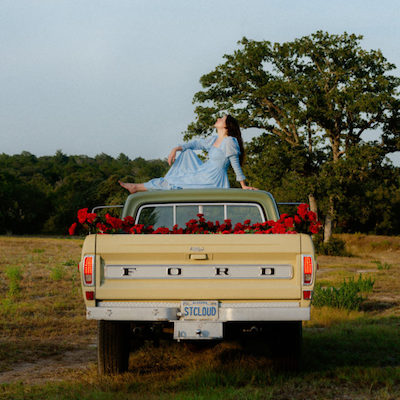
Secret Meeting score: 90
by Dave Bertram
Despite his undisputable reputation as one of the most prolific song writers of his generation, Ryan Adams has always divided opinion. To some, he’s a troubled genius who bares emotion in a heartbreakingly unique mould; to others, a whimsical, alt-rock flat track bully for the middle of the road.
For me, he is one of the most dauntless, natural singer-songwriters in modern pop history. His prolificacy borders on the ridiculous and his unfiltered spontaneity tears away from the nauseating ‘team’ approach to crafting records we read about with unnerving regularity.
Eighteen years ago, he was down and out. His alt-country band Whiskeytown fell apart following a major label consolidation and his long-term relationship with music publicist Amy Lombardi ended. Broke, he left Manhattan and moved back home to Jacksonville, North Carolina, where he embarked on what he intended as a goodbye to his career as a musician. What turned out to be the first of his 16-album solo career, Heartbreaker, was released on Bloodshot Records in 2000 to much critical-acclaim, despite the low numbers.
Since that point, Adams has raced through records – perhaps intent on redefining their very meaning – at break-neck speed, genre-hopping depending on where the wind takes him with his heart double-stitched on his denim jacket sleeve. His critics slam him for meandering in self-indulgence, rather than focusing on quality. But for me, they miss the point. His records are a stream of consciousness that help him tackle those emotions he expresses so boldly – change the process and you lose the intimacy his songs deliver.
Following the alt-country fuelled Jacksonville City Nights and double-disc Cold Roses, his third record of 2005, 29, epitomises this perfectly. He only had two tracks fully written when he walked into Ethan Johns’ North Hollywood studio, Three Crows. But as the producer, who first worked with Adams on his debut, told Paste Magazine, this was clearly business as usual – “The amount of verse this guy has at his fingertips is astounding, particularly when, at any given moment, 90 percent of it hasn’t been written down…There were anything from kernels of ideas to almost-done stuff that he would pull out and finish off here right before we recorded it.”
The recording process was simple. Johns would press record and Adams would start playing, with the idea to keep the material as fresh as possible, so much so that some of the tracks on the finished record are the first complete run-throughs. The heart-breaking piano ballad Blue Sky Blues is brilliant example of this spontaneity. It’s an intimate performance in your living room, not a track printed on record – it’s imperfections (the piano falls slightly out of time in places) give it a unique character that you just can’t replicate.
Cut in the midst of his most prolific period, 29 was largely overlooked but in hindsight, it may be Adams at his heartfelt, self-reflective best. The record itself features nine tracks, each of which portray a different year of his twenties (before the age of 29, obviously) through stories of love, loss, confusion and travel, shifting from the frenzied country of the Grateful Dead-infused title track, 29 and the haunting, tearful piano of Starlite Diner. His battle against depression features throughout, the significance of which is delivered through carefully crafted metaphor.
Second track Strawberry Wine is an eight-minute ode to Neil Young which provides us all with a lesson in self-help. From the opening line – “Last night the street collapsed on itself in fact, it broke right in two”, he repeatedly reminds us “Don’t spend too much time on the other side, let the daylight in.” By weaving in a 12-string and ukulele to embroider Adams’ guitar lines, Johns’ production gives the track an aptly hazy feel as it draws to a finish.
The battle continues through the sombre, fragile Blue Sky Blues. Alone with the piano and a beautiful string arrangement, Adams bemoans his position – “My mountain is hidden in a pile of trees, and it’s the one I’ll have to climb if I ever want to see over the ocean.” Where The Sadness is full of wiggly, Ennio Morricone-inspired spaghetti guitar and the uplifting, pedal steel-riddled Carolina Rain follows in the country-travelogue footsteps of his work from earlier that year, Elizabeth, You Were Born to Play That Part is a piano-and-vocals meditation that brings us back to record’s central theme.
Standout Starlite Diner tells a tale of profound longing, the listener alone with Adams’ piano as the arrangements perfectly depict the sentiment – “You said you’d meet me at a quarter to twelve, and I’m standing here in the corner, wishing you were here, in my arms.” It clearly gets too much – “It’s a blow out on a birthday cake, and I’m a birthday candle floating on a lake.” Fabulous closer Voices sees him convey proper despondency through a story from the bible, howling “Elijah/ Don’t you call,” repeatedly invoking the messenger’s miraculous firestorm.
Clocking in at 48 minutes, 29 is a stroll around the block compared to his other work. But when you combine his voice, lyrics and arrangement, you’d be hard pushed to find him expose his emotions to this extent elsewhere. I’ve found this record incredibly relatable, in both good and bad times, since I was introduced to it more than a decade ago. I hope you find the same.



